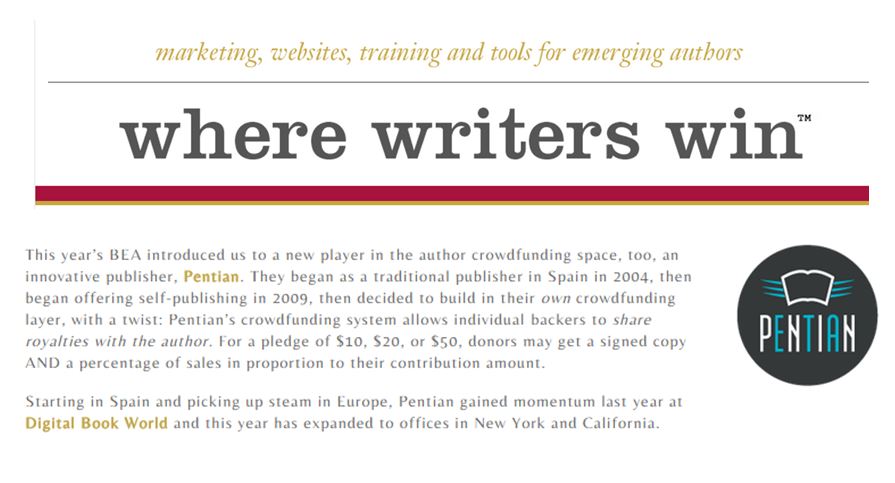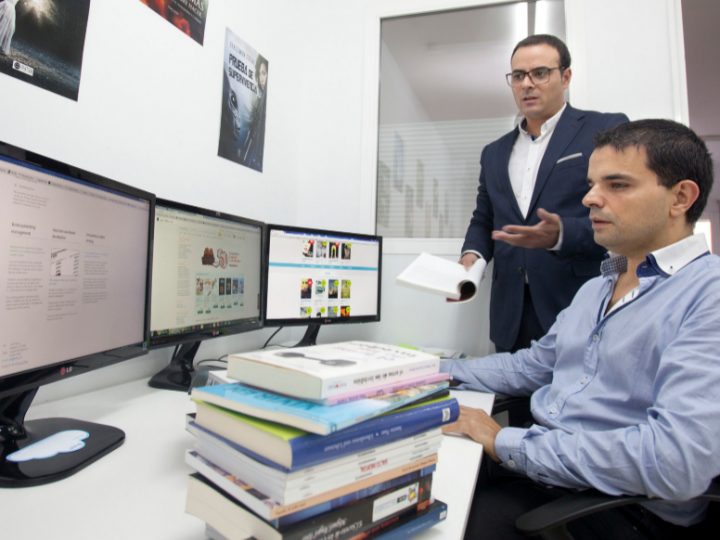
This year’s BEA introduced us to a new player in the author crowdfunding space, too, an innovative publisher, Pentian. They began as a traditional publisher in Spain in 2004, then began offering self-publishing in 2009, then decided to build in their own crowdfunding layer, with a twist: Pentian’s crowdfunding system allows individual backers to share royalties with the author. For a pledge of $10, $20, or $50, donors may get a signed copy AND a percentage of sales in proportion to their contribution amount.
Starting in Spain and picking up steam in Europe, Pentian gained momentum last year atDigital Book World and this year has expanded to offices in New York and California.
Crowdfunding Pros and Cons
Crowdfunding is a non-starter if you aren’t willing to share and push the fact that your book is out there. The most successful projects succeed because their authors are putting in the work to share that folks can “buy in” for pre-orders and signed copies.
Authors often think of crowdfunding as a charity; it’s not. Take a look at other campaigns and you’ll see that the initial buyers get something special, whether it’s that signed copy, or a gift w/ purchase. And scheduling pre-orders this way can also put you ahead of the curve when it comes to soliciting those folks for reviews and asking them (nicely) to share the news of your book.
Crowdfunding with Pentian means you’re publishing with Pentian, period. Which means you can’t enjoy the flexibility of an author crowdfunding platform where an author sets their budget, uses the money their way, and the crowdfunding becomes a platform builder for a book’s pre-sales.
And, some authors may not like getting locked into sharing their royalties for 36 months (though there’s nothing stopping you or your family members from backing the project, too — and many do, to keep a larger portion of their royalties).
But on the upside, because Pentian puts a cap on the amount of money raised (unlike Kickstarter), the sense of urgency to “get in while you can” typically helps get books 100% funded. We saw many, many examples of 100% funded projects at Pentian.com, so the model is working from that sense.
If a book fails to reach its goal, that’s a pretty good sign a book might not be “ready for prime time.” And at that point an author can try again, or pull the book.



